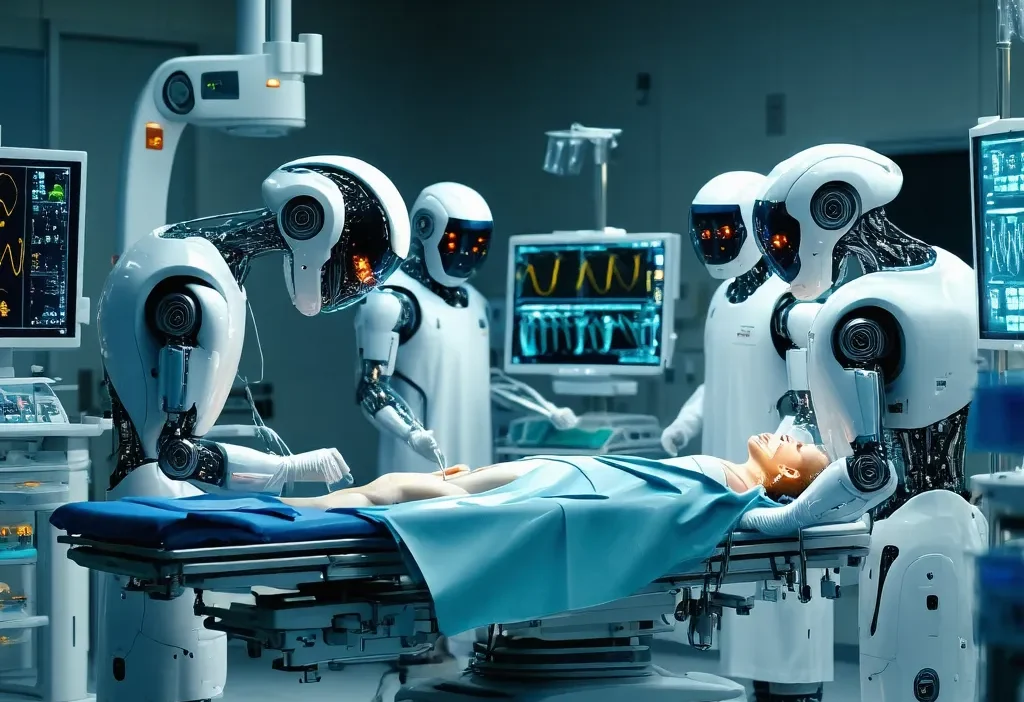Introduction
In the not-so-distant future, artificial intelligence (AI) is poised to transform healthcare as we know it. From diagnosing diseases with unprecedented accuracy to personalizing treatments, AI is becoming a cornerstone of modern medicine. This blog explores how AI is reshaping healthcare and what this means for patients and professionals alike.
The Role of AI in Diagnostics
One of the most significant contributions of AI in healthcare is its ability to enhance diagnostic accuracy. Traditional methods often rely on human interpretation, which can be time-consuming and prone to error. AI-powered tools, however, analyze vast amounts of data with remarkable speed and precision.
- Machine learning algorithms are trained on millions of medical images, enabling them to detect anomalies that might be missed by the human eye.
- AI can provide a second opinion, reducing the likelihood of misdiagnosis and improving patient outcomes.
- For example, AI has shown remarkable success in detecting early signs of cancer, diabetic retinopathy, and other conditions that require timely intervention.
Personalized Medicine
The concept of personalized medicine is no longer a distant dream thanks to AI. By analyzing an individual’s genetic makeup, lifestyle, and medical history, AI can tailor treatments to suit their unique needs.
Pharmacogenomics, a field that studies how genes affect drug responses, benefits greatly from AI. This technology helps predict how a patient will respond to certain medications, minimizing side effects and maximizing efficacy.
AI in Drug Development
The process of developing new drugs is lengthy and expensive. AI is streamlining this process by predicting how potential compounds will behave before they even enter clinical trials.
- AI can analyze historical data to identify patterns that might indicate a compound’s effectiveness or toxicity.
- Machine learning models are also used to design new drugs from scratch, significantly speeding up the discovery phase.
The Ethical Considerations
While AI offers immense potential, it also raises important ethical questions. Issues such as data privacy, algorithmic bias, and accountability must be addressed to ensure that AI is used responsibly in healthcare.
Data Privacy
Patient data is highly sensitive, and ensuring its security is paramount. AI systems must comply with strict regulations like HIPAA to protect patient information from unauthorized access.
Algorithmic Bias
AI algorithms are only as unbiased as the data they’re trained on. If historical biases are present in the dataset, they can lead to unfair or inaccurate outcomes. It’s crucial to diversify datasets and regularly audit AI systems for bias.
The Future Outlook
As AI continues to evolve, its applications in healthcare will only expand. Future advancements could include:
- AI-powered robots assisting in surgeries with greater precision and dexterity than human hands.
- Virtual health assistants that monitor patients’ health in real-time, providing early warnings of potential issues.
Conclusion
AI is not just a buzzword; it’s a transformative force that is reshaping healthcare. By embracing this technology responsibly, we can unlock new possibilities for diagnosis, treatment, and patient care. The future of medicine looks brighter—and more personalized—thanks to AI.





